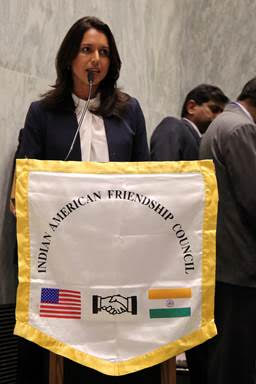
Democratic norms flouted by machinations of Modi establishment


At the height of the pandemic, in a sheer dictatorial manner, Modi government had introduced an ordinance in the Parliament to get the 3 black laws ratified in a matter of days, by both Houses and to get them stamped by the President, all in a jiffy, sans any debate in the Temple of Democracy, after subverting the Constitution and throttling the voice of the States. Verily in consonance with his modus operandi, the Leader chosen by the People, made the unilateral announcement of revocation of the laws, outside the Parliament. Just as at the time of introduction, there was no debate allowed while withdrawing them. Rather, 12 members of the Rajya Sabha were summarily suspended from the House for making protestations to have a discussion on the floor of the House.
Anti-democratic Attitude
The reality is that, between 2014 and 2021, almost 95% of all the Bills tabled in the Parliament, were carried through, without allowing any debate and were declared to have become the Law, without the approval of the Parliamentary Committees. The ‘Emperor’, as per his wont, went ahead with the Demonetization policy, thereby shattering the nation’s economy. By publicizing the slogan of “one country, one tax”, GST was announced overnight, while the opinion of merchants was ignored. Later, 150 amendments had to be made in this case. Article 370 of the Constitution was abrogated to deny the rights of the public in Kashmir. By breaking up Jammu & Kashmir into pieces, the Central regime gave a tyrannical signal that it can wreak havoc on anyone and also that the Minorities in India do not matter and are a non-entity.
What does the Indian Constitution say
Article 246 clause 14 clearly stipulates that ‘agriculture is a State-subject’ and all related laws shall be made by the States, but the Central government decided otherwise, subverted the Constitution to deny the States their due rights, thereby enacted the 3 black laws. According to Article 246, there are 3 Lists in the matter of enacting laws on various subjects, namely Center, States and Center-State Concurrent Lists. In all these Lists, agriculture has been mentioned 12 times under Schedule 7 but the Parliament has no legality to decide on matters pertaining to farm-lands and agricultural work.
Government evades debate in Parliament
Agro-laws are not the only area in which the government has acted hastily. In several other spheres like exercising control over many autonomous institutions, it has mistreated them like a ‘parrot in a cage’. Now, in the same breath, the PM has tendered an apology to the farming community and has, simultaneously, said that “some sections of farmers did not accept the laws made for their prosperity”. The agriculture minister did not facilitate any debate in Parliament, to evade any accountability about the death of almost 700 martyrs, during the year-long agitation by farmers. In an utterly shocking statement, he said that he has no access to any statistics about the deaths of martyrs, during the agitation. If a debate had happened, the government would have had to face questions about the various conspiracies hatched to discredit the agitation, about the shattered economy of Punjab, Haryana, Uttar Pradesh as well as about the arrogance, apathy and all misdemeanors of the government, regarding the agitation. Several hundred thousands of farmers were imprisoned in an ‘Open-Jail’, surrounded by various fortifications, in sheer violation of human-rights, which issue was raised on international platforms, including the United Nations and in Parliaments of many countries. Thousands of cases were registered against agitating farmers. However, ultimately, the government was left with no option but to retreat, with an eye on emerging victorious in the impending elections in Punjab and Uttar Pradesh.
Corporate Houses hold all the Keys
Since long, thegovernment had been conniving to fill coffers of the corporate sector, by depriving the already marginalized farmers of their farmlands. The Seed-Bill of 2019 ensured that the farmers were weakened, and the control of corporate sector was enhanced, in the matter of providing seeds, which is the foundation of farming. Overall, 4 major agro-chemical corporations rule the roost in this sphere and have all the rights for seed-distribution. They control the seed-prices which have sky-rocketed. This is wrecking the farmers in every way:economically, mentally, emotionally and psychologically.
Economic catastrophe
A survey has highlighted the poor economic health of the farmers, Agriculture has been reduced to an impractical and non-profitable occupation. Small-scale farmers are leasing out their land, under contract, thereby reducing their own status to that of a laborer on their own lands.
Limited success has been attained in promoting animal-husbandry and non-farming businesses, as alternate or additional sources of generating income. Small farmers are unable to avail of loan-facilities through the channels of institutionalized credit-lines.
The report has suggested the government should, now, keep aside the political verbiage of “doubling the income of farmers” through new policies. Instead, it should concentrate upon enhancing the productivity, pricing and practicality of farm-produce. It should also improve the conditions of small and medium farmers by amending the policies. Minimum Support Prices should be ensured, without violating the stipulations laid down by the World Trade Organization. And how best to implement the Swaminathan Commission Report, towards the benefit of farmers. Also, measures must be taken to increase publicizing awareness about the traditional farming and to encourage and facilitate modern techniques, to enhance productivity without polluting the environment.
Dictatorial Governance
The government has, conveniently, sidelined the detailed findings of all these Reports and Surveys and is determined to remain arrogant and to become fearfully subservient to WTO conditions, which leads the government to become a rubber-stamp in the hands of the Corporate-Bigwigs. So, the government went ahead with enacting the 3 black laws namely:The Farmers‘ Produce Trade and Commerce Promotion and FacilitationAct2020, The Farmers Empowerment and Protection Agreement on Price Assurance and Farm services Act 2020 and The EssentialCommodities Amendment Act 2020).
Under the Farmers‘ Produce Trade and Commerce Promotion and FacilitationAct2020, the main objective was to provide more avenues to farmers, enabling them with freedom to sell the produce at a good profit. Also, this Act prohibited the States from imposing taxes upon any sale-purchase of produce outside the sale-zones. The farmers could determine the sale-price and sell the produce, anywhere in the country, to an individual, store or any organization.
Under the Farmers Empowerment and Protection Agreement on Price Assurance and Farm services Act 2020, farmers could make an advance-sale of their produce,even prior to sowing the seeds, as per the given prices and set quality parameters. This condition is directly associated with and clearly promotescorporate farming, which is detrimental to the farmers. The government says this shall reduce the risk for farmers and they would not have to run around looking for buyers; furthermore, the farmers shall be able to have direct access to wholesale buyers, the big exporters and merchants. Before the Essential Commodities (Amendment) Act,2020 there was the Essential Commodities Act 1955 under which traders were authorized to maintain only a limited stock of any produce. Under the Amendment, many varieties of produce were kept outside the purview of the List of Essential Commodities, namely grains, cereals, pulses, oilseeds, edible-oils, onion, potato. Government says there shall be no limit imposed on the stocks, during the eventuality of a National Emergency or a drought.
Social Impact of the 3 Laws
These laws would not have affected only the farmers but would have crushed the masses, on the price front. The first law would have totally wiped off the existence and relevance of the Governmental Procurement Infrastructure. Government was on way to gifting an unconditional free-hand to the Corporate Entities, regarding sale-purchase of the produce. In the near future, the government was planning to buy large stocks, all by itself. Just imagine a scenario whereby, during any emergency or pandemic, the government would have to rely on buying huge stocks from the private sector, in striking contrast to the prevailing situation during Corona phase, when the government has been providing free grains to the public, from the stocks of Food Corporation of India. This would have, soon, demolished the governmental self-reliance mechanism and consequently the MSP would have been destroyed because MSP depends on a strong governmental procurement organization.
The 2nd law is widely in discussion, in correlation with the current stipulations which can be an answer to the controversial contract-farming system. However, the reality is that one clause here clearly prohibits farmers from seeking recourse to legal redress, in case of dispute with corporate parties. This law would have hugely impacted a large section of the landless farmers. As per the 2011 census, 26.3 crore families are engaged in agriculture and agro-businesses. Of these, 14 crore families own farmlands, and 14.43 crore are landless. The question is how a week, poor farmer could have competed with the powerful corporate sector which could, at any time, get a farmer’s land on a 5-year lease, but what would a landless farmer do with no land to give on lease? So, he would be totally annihilated. Then, the corporate could also bring in huge machinery to replace the landless laborer-farmer and so he would be deprived of even any meager income to sustain his family.
The 3rd law was, actually, a document which ensures huge inflation in the prices of all edibles. This enabled the private sector to hoard huge unlimited stocks, about which the government would be totally in the dark, ignorant about who has how much stock and where! This law would have legitimized and legalized hoarding and black-marketing, on an unimaginable scale. It was clearly stated the State governments would and could initiate legal action only when the price levels of any commodity would become double. Such a scenario would have become torturous for the middle-class and low-income groups. So, the poor farmer would have lost the land and the poor citizen wouldn’t have been able to afford edibles for sustenance. This implies that massive sections of the populace would have been further impoverished beyond imagination.
Global Procurement-Reform Policy Failure
The hasty enactment and sudden revocation of 3 black laws is a signal in the direction of an emergent need towards a complete rethinking about farming in India. The so-called reforms advocated by Modi government have, already, been a proven failure, worldwide, in several nations and across continents. From The Americas to Australia and from India to Philippines, such marketing-systems have massively multiplied the existing problems in the agro-sector. In Canada and America, during the past 150 years, problems have increased, and income has rapidly fallen in the agro-sector, despite all the heavy investments, technological utilization, huge productivity and well-defined community-pricing mechanisms in place. Then, wasn’t Modi government building castles in the air, by proclaiming that farmers would have their income doubled in 5 years?
Corporate World and Farming Sector
Currently, the corporate folks are desirous of completely swallowing the agricultural sector, heritage, culture, lifestyle and life, as a whole. And the government is displaying a total sense of utter apathy towards the farmers. As of today, the farming sector and allied occupations/businesses are fully capable of providing multifarious avenues of employment to extremely large sections of the population. With governmental investment, further improvement is possible in the spheres of increased production, stockpiling, establishing processing unitsand giving reasonably higher prices to the farmers, for their produce. But the government is deliberately being evasive about providing adequate facilities in the areas of education and health. Similarly, this apathy has come out in the open, in correlation with the agricultural sector. The entire world is witness to the whole imbroglio involving the Indian government and corporate sector being hand-in-glove to deprive the farmers of their right to landownership.
Farmer Agitation against Modi Government
The government has been propagating about the worthiness of the forcibly enacted laws, as being pro-farmer, who would be able to generate an increased income; shall be enabled to overcome issues pertaining to borrowings, loans and mortgage; would become free from the fear and anxiety of rampant incidents of suicide amongst troubled farmers. But the farmers understood the nefarious agenda of the government collusion and connivance with the corporate world, and so the farmers became determined to launch an agitation to challenge the progressive model advertized by the corporate culture. The farmers, armed with their own energy and motivational force, received immediate massive support from rural and urban populace, which included laborer’s, small business-owners, students, teachers, intelligentsia, artists, social activists, retired personnel in the police, defense-forces and civil services. So, the farmer-protestation was transformed into a nationwide public movement expressing outrage. The clear signal emanating from the agitation was that of creating a narrative of a public-outcry against the laws and in favor of the restoration of pro-democratic norms. All this became possible due to the sheer spirit of resilience displayed by farmers, the women, families, workers and supporters all of whom went through harrowingly painful times for over a year of protests, bearing financial losses, mental and physical tortures of weather extremities and governmental atrocities, during the protest under the sky. However, the farmers succeeded in subduing the government, due to an able leadership. Hence, this agitation joined the rank and file of other successful protests in India, like: Champaaran (1917-18) Kherra (1918-19) Bardoli Satyagraha (1928) Moplaha Rebellion (1921) Telengana Wave (1945-46) Punjab Andolan (1907 to 1930) despite braving all odds.
History of Farmer Protests in Punjab
Prior to 1947 (pre and post independence) there have been many struggles amongst which Mujara Andolan was very successful in getting land ownership rights restored. In the 1960s during the tenure of Partap Singh Kairon (Congress CM of Punjab) a movement was launched against prosperity-tax, in which the farmers emerged victorious. After the Green Revolution, the 1980s witnessed 40 thousand farmers surround the Governor, in Chandigarh. This culminated in favor of the farmers, and they got concessions. But the 2020 farmers-agitation against 3 black laws assumed the form of a Peoples’ Protest and succeeded in thwarting the ulterior designs of the government-corporate-combine.
The 1st agitation originating from Punjab was named ‘Save The Turban’. Then came Champaran and Telengana Movements. The recent struggle was against the State and Corporate Sector, where the United Farmers Front, a conglomerate of several hundred organizations, succeeded despite an apathy displayed by fake-media propaganda against the farming community.
Is it Half-the-Victory for the Farmers?
The basic pre-requisite is ensuring MSP which would be the real reform, much needed by Indian agricultural sector. This means there would be no purchase possible, at a price lower than the pre-designated MSP as this would become a second steppingstone towards a reformed farming. The farmers receive 40% less price than the Minimum Support Price, announced by the government. The Economic Survey 2016 proves that in 17 States (equivalent of half the nation) the average farming income is a meager Rupees 40,000 per annum. According to the Evaluation Survey 2019, the income is only Rupees 27 daily. Only when MSP is actually implemented, the farmers would really be able to enjoy a fairly good income. Consequently, the National GDP would register a record rise and the Rural Economy shall flourish. The current structure is built, to further enrich the affluent, at the expense of the poor who shall be further impoverished. This system needs an overhaul. The “New-Order’ shall involve Human Resource or Manpower as an investment and it shall entail Public-Good as the noble objective, verily in consonance with the ethical values of a Welfare State. Without a guaranteed MSP, this current Victory of the Farmers shall be rendered incomplete.
Can MSP for crops be a Constitutional Guarantee?
Let’s analyze the elaborative ramifications of MSP:MSP means the government shall provide (to the farmer) at least such an amount which shall cover the expenditures incurred on crop cultivation and harvesting. In 1964, the L. K. Jha Committee had formed The Farming Costing & Pricing Commission and the Fertilizer Corporation of India. And so, the management-process of purchase and storage of crops commenced. Initially, two prices were announced: Purchase Price (which was higher than MSP) and Minimum Support Price. However, since 1973-74, only MSP was retained, and Purchase Price was discontinued. Currently, plans are afoot to get rid of EVEN the MSP. In reality, Swaminathan Committee (formed to determine the prices for 23 varieties of crops) had also proposed an MSP Formula which was C2+50% which was, indeed, a formula that was for the Good of the farmers. C2 suggested inclusion of clauses like considering the head of the family as a skilled worker or technician, instead of a mere laborer. But the government says it requires to raise 17 lakh crore rupees for this. Upon analyzing all facts, we find that the MSP for 23 varieties of crops comes to only 9 lakh crore rupees and the entire yield does not even reach the market. If the expenses on manure, seeds and fodder for the cattle is taken into account, then the crops would fetch a total of 7.7 lakh crore rupees at MSP rates. Large part of the overall amount spent by the government on the purchase of crops goes down the drain, due to mismanagement in storage and also on account of corruption. Huge amounts can be saved by the government, if a proven and an efficient managerial cadre is entrusted with this assignment.
‘Guru Nanak’sunique model’ is the Need of the Hour
In order to rectify the flaws and shortcomings in agricultural sector in India, it would only be appropriate if the great model initiated 500 years ago at Kartarpur Sahib, by Sree Guru Nanak Sahib Ji, is implemented in letter and spirit. Guru Ji had blessed a model wherein Community-Living was encouraged by giving equal stakes to everyone, as units are given in a Co-operative Society. Under that model, owners of land, the workers, artisans and everyone pooled all the earnings and shared with each other, as per the requirements. Honest earning, compassionate giving and Remembrance of Almighty One were the ethical values which sustained Guru Nanak’s model which made everyone flourish, healthy, contented and happy. Everybody was involved in the social activities. The cooperative farming model, adopted in Hoshiarpur District of Punjab is one example that can be followed, Also, must mention Milkfed Punjab and Amul Dairy as marketing models. In Kerala State, a women’s organization named ‘Kudumbashree’ presents another successful model worth emulating and so is the work of Land Acquisition Committee in Punjab. Must consider the functioning of Farmers Produce Organization operating with governmental grants and support. A new agricultural structure needs to be built, where farmers must be brought in contact with markets. The utmost humanitarian service shall be to ensure feeding the insecure and poor families in the area of fulfilling their nourishment needs.
Undemocratic Regime subdued by The Agitation
The Agitation by Indian Farmers is, possibly, the longest drawn-out protest, globally, attracting worldwide attention and moral support. It attained the honor of sowing the seeds of an Evergreen Revolution, having exposed the Designs of The Establishment, in the Public Square, so to say. In reality, this Agitation is a historic victory, having registered visible records, taught a lesson to the rulers. Most significantly, the greatest achievement is that a fresh new message of oneness, camaraderie, religious equality, acceptance and goodwill has gone out to the Great Resilient People of India.
(The author is a retired Principal, and a well-known columnist. He is President of Punjabi Columnists Patrakar Manch. He can be reached at gurmitpalahi@yahoo.com)





Be the first to comment